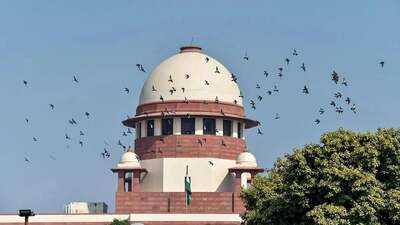
Bhopal (Madhya Pradesh): In a 30-year-old murder case of Jabalpur, the Supreme Court has acquitted the accused on benefit of doubt, stating that “Prior enmity can indicate motive but also raise possibility of false accusation.”
According to the apex court, it is a settled law that enmity is a double-edged weapon.
On the one hand, it provides motive but on the other it also does not rule out the possibility of false implication. “From the nature of the evidence placed on record by the prosecution in this case, the possibility of the present appellant being falsely implicated on account of previous enmity cannot be ruled out.
Therefore, the appellant is entitled to benefit of doubt”, the court said. The SC cited other factors which cast doubt over the prosecution's case such as contradictions in witness statements and an unexplained 45-day delay in recording key witness testimonies, which weakened the prosecution’s case.
To recall, on August 22, 1994, at around 12.30 PM an abusive quarrel broke out on the road between the accused-appellant Aslam alias Imran and the deceased in Naya Mohalla in Jabalpur.
The accused thereafter attacked the deceased with a butcher’s knife (banka), causing multiple injuries on his hands and thighs and a deep wound on his neck leading to excessive bleeding.
The accused fled from the scene and the injured victim was taken to Victoria Hospital from where he was shifted to the Medical College. He succumbed to his injuries on the same day at around 2:10 PM. Advocate Sanjay Hegade informed the Free Press, “It was the deceased who had the knife and not the accused. Imran (accused) was implicated so it was a big lacuna in the case and witnesses always gave contradictory statements.”